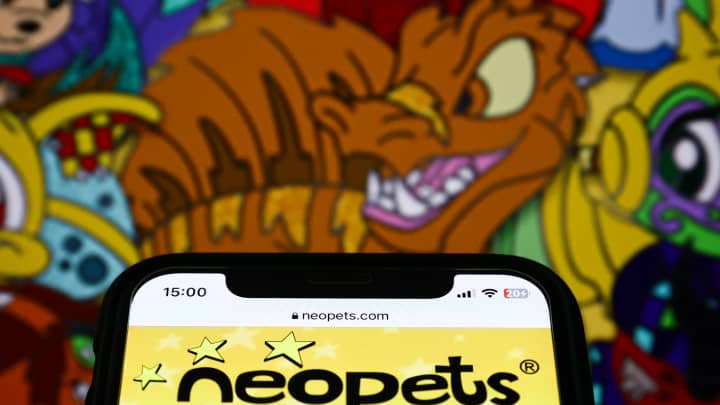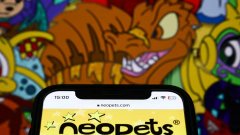
Moving abroad can be a lonely experience. For Dominic Law, moving from Canada to Hong Kong at 9-years-old in 1996 — before calls over Wi-Fi were widespread — meant that contacting friends was nearly impossible.
In an interview with CNBC at Gamescom Asia in Singapore, Law, who is now the new owner of virtual pet website Neopets said, "Back then, we only had a landline number, and IDD calls were so expensive. So when I went back to Canada to visit, that's where my friends introduced me to Neopets… and I played a lot with them and reconnected with all my friends back in Canada.
"It's great that we can have a platform that transcends public geography and connects people, and I think that's a big part of my childhood."
Nearly two decades later, Law is now the CEO of World of Neopia, the team that bought Neopets in July for $4 million from Chinese company NetDragon Websoft.
For those who grew up in the early years of the internet, the bright yellow interface of Neopets would be a familiar sight.
Neopets was launched in 1999, and the game allowed players to care for cartoon pets, chat with other users, and play minigames. The game has a total of 150 million registered users and at the height of its popularity in 2005, the game had 35 million monthly active users, Law tells CNBC.
The World of Neopia CEO previously worked for NetDragon Websoft, helping the company restructure their education technology business, which included Neopets.
In that role, Law said he saw "the power of the Neopets community," pointing out that despite Neopets being a 24-year-old game, it still has over a million active users.
While the current numbers are a fraction of its peak user base, he said the game is still cash generative.
That's despite what Law said was poor management, leading to little evolution over the past decade. For example, many of the site's minigames — essential for earning in-game currency — have become unplayable due to the discontinuation of the Adobe Flash software on web browsers.
Since buying Neopets, Law said his team is in the process of restoring those minigames and modernizing them to enhance the experience.
A check by CNBC revealed that while not all the minigames could be played and some features were still displaying a notice that Adobe Flash was no longer supported, most of the site could still run.
While Law is optimistic, he is aware that Neopets was born in a different era of video gaming.
The industry landscape has changed substantially in the 24 years since Neopets' inception. It's a tall order to become not only financially sustainable, but also competitive in today's market where gamers are spoiled for choice.
For example, mobile games offer convenience and portability, while PC and console games deliver graphics and gameplay environments light-years ahead of Neopets' webpage browsing experiences and Flash minigames.
However, Law said that "the silver lining for Neopets is that we basically didn't do anything new for the past 10 years, and we're able to actually keep the early internet gaming culture in its purest form."
"You can do whatever you want, you can choose your own adventure. There's no set way of playing Neopets," he added.
Law explains that this stasis also meant that Neopets didn't evolve like the rest of the gaming industry, which he thinks has been "very focused on just profitability, microtransactions, and ways to milk every dollar out of your pocket."
"We've always been a game that is more about fun and entertainment. And I think in the long run that will always win. And one of the main reasons why we've been able to survive for more than 20 years is that we probably created a fun enough game."
He acknowledges that Neopets is probably not going to directly compete with triple-A mobile games like Genshin Impact, developed by Chinese developer miHoYo, or PC and console heavyweight shooter Call of Duty, developed by Activision.
Instead, it will find its niche by capitalizing on the nostalgia that players had for Neopets.
"We're like a living relic, like a museum that you can always come experience and have a different way of playing games."
Law said that having new users experience what players did 20 years ago with Neopets is the game's unique selling point — and this is an experience that the big game studios will find hard to replicate.
Law's team has been on what it calls a "reactivation campaign" to win back players, appearing at gaming events and enlisting prominent figures like singer John Legend as brand ambassadors to launch "a new era for Neopets."
Unlike a completely new game, Neopets already has brand awareness, which in turn lowers the "cost to acquisition" — the effort needed to bring players back into the game.
As Neopets accounts are attached to email addresses, Law noted that Neopets can send reactivation materials to former players via this channel. He claimed small scale testing has shown that "we can basically do zero performance marketing and still get enough of a core community to come back to play any new experiences we push out."
Performance marketing refers to online campaigns in which advertisers pay marketing companies or advertising platforms for results achieved.
Law is confident that a good portion of "lapsed players" will return as game features are fixed, saying his team's efforts are already bearing fruit. He said user engagement, user activity and revenue has hit a five-year peak, and Neopets.com is one of the top 25 video gaming sites in the U.S. in terms of traffic and user engagement.
Still, Law doesn't expect these reactivated players to stay long. "They may come back to say hi to their pets, but they won't be sticky because they just, graduated from the game."
Neopets' revenue comes from advertising, in-game purchases and subscriptions. So while revenue may climb alongside an initial bump in website traffic as lapsed players return, that cash would also taper off if users don't stay.
To bolster Neopets' long-term financial stability, Law plans to license intellectual property to sell merchandise and develop new games. Some partnerships planned for 2024 include a collaboration with board game Monopoly and Upper Deck, a company that makes trading cards.
In his keynote speech at Gamescom Asia, Law explained that while "lapsed players might not come back to play Neopets, but I can come back to buy my childhood memories" in the form of merchandise.
He noted that merchandise generates more than 80% of revenue for other major intellectual properties like Disney's Mickey Mouse and Nintendo's Pokemon. For Neopets, Law said the merch business would include both physical, like plushies and clothing, and digital, such as in-game purchases.
Law is also looking at "phygital" products, where a player can buy a physical product, and via a QR code, get digital bonuses in the games as well.
"The main goal is to get as many of the players to come back, and also to expand this world to the next generation of potential players."
The company hopes to attract new users to the Neopets brand as more people interact with the Neopets IP through new games, or the original site.
In 2024, Law's team is planning to launch World of Neopets, a 3D simulator game that will utilize the existing Neopets world, but in a modern gaming environment. Law describes World of Neopets as a "3D open world simulator," adding that while a lot of the elements will stay true to the current Neopets experience, others, like minigames, will become more sociable and may incorporate multiplayer elements.
"The game environment will be a way for them to be able to reignite their childhood memories, but also having something that's a lot more comparable to what they would expect as a modern game... it's kind of like how Pokemon evolved over the years," Law explained.
Does this mean that new Neopets games will replace the 24-year old Neopets.com? Not so, said Law. The original Neopets will always be there for the long term, with players always able to play the minigames they remember, haggle with shopkeepers over items, and of course, take a piece of the Giant Omelette.




